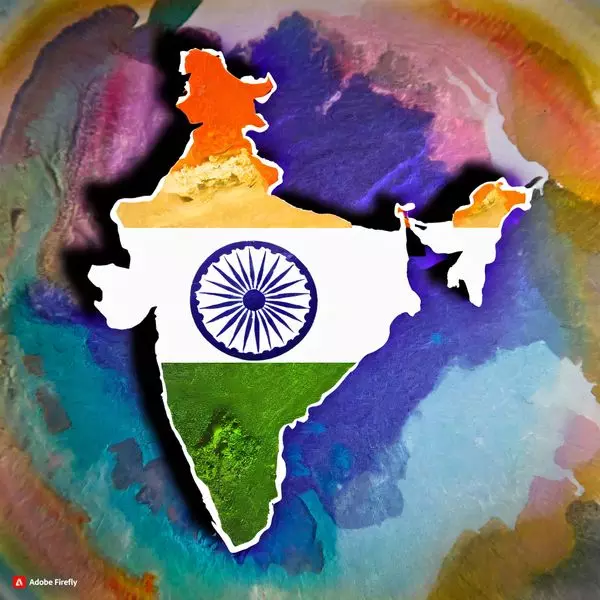India, known formally as Bharat, is a diverse nation encapsulating a tapestry of religions, cultures, customs, and a rich heritage. The term ‘Bharat,’ with its origins in Sanskrit, holds a significant historical and cultural significance. Throughout India’s ancient history, the name ‘Bharat’ has been linked to various legends and events, contributing to its enduring narrative.
According to ancient texts and scriptures, one of the earliest references to the name ‘Bharat’ dates back to the Rig Veda’s accounts of the legendary ‘Dasharajna’ or the Battle of Ten Kings. This epic confrontation involved King Sudasa of the Bharata tribe from the Trtsu Dynasty, ultimately leading to the tribe’s recognition and the land being termed ‘Bharat Varsha’ – the land of Bharata.
Another narrative, prominent in the Mahabharata, credits the name ‘Bharat’ to the legendary emperor Bharata Chakravarti, founder of the Bharata Dynasty. Renowned for uniting Greater India into a single political entity, he solidified the association of the land with his name, thereby leading to the term ‘Bharatvarsha.’
Moreover, the name ‘Bharat’ finds its linguistic roots in Sanskrit, symbolizing Agni, the fire deity. With the Sanskrit root ‘bhr’ connoting ‘to bear’ or ‘to carry,’ it also signifies a pursuit of knowledge, emphasizing the country’s ancient scholarly traditions.
In the context of Jain Dharma, ‘Bharat’ is believed to be named after Bharat Chakravarti, the eldest son of the first Jain Tirthankar, marking Jainism’s contribution to India’s ancient civilisation.
Notably, the name ‘India’ is derived from the river ‘Indus,’ originating from Old Persian and subsequently from the Sanskrit word ‘Sindhu.’ Formerly referred to as Hindustan, signifying the “Land of the Hindus” in Persian, it encompassed regions that are now part of northern India and Pakistan.
Also Read: “Will Stick To India Instead Of Bharat In Textbooks”: Kerala Education Minister











